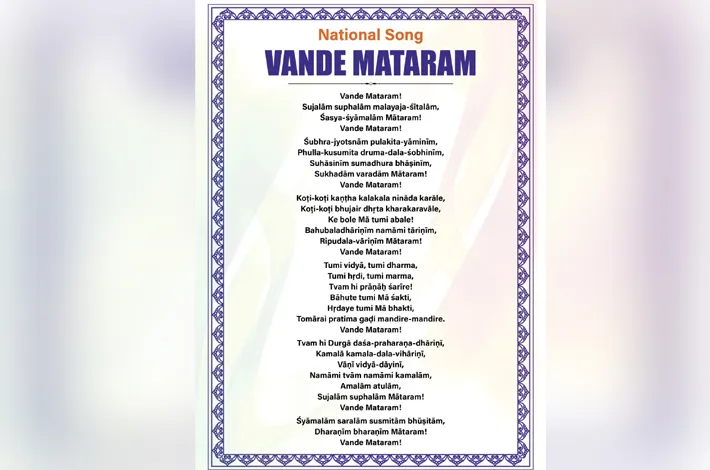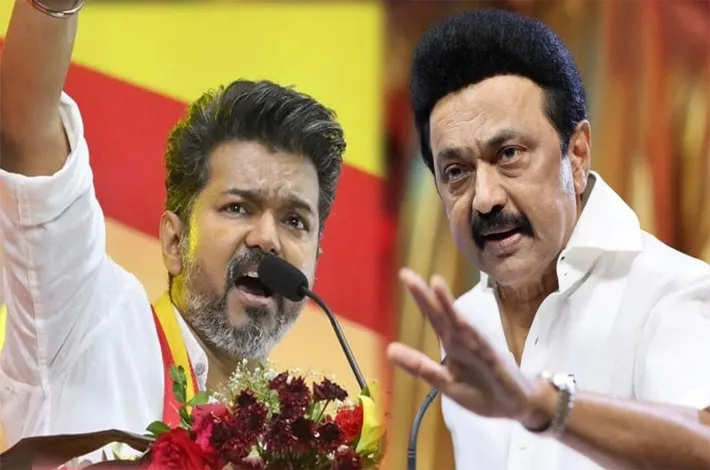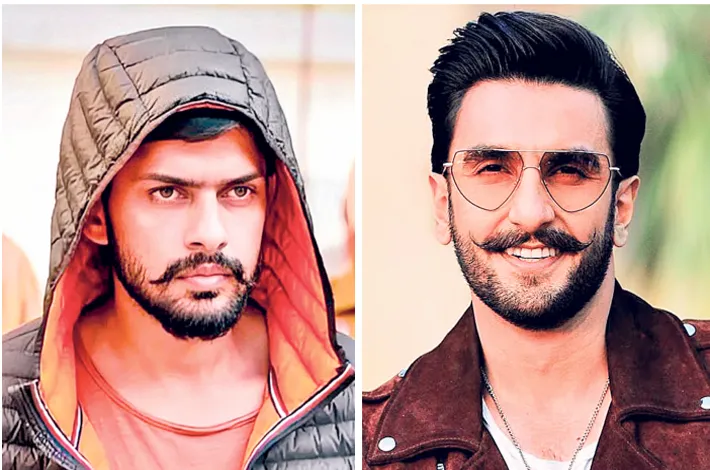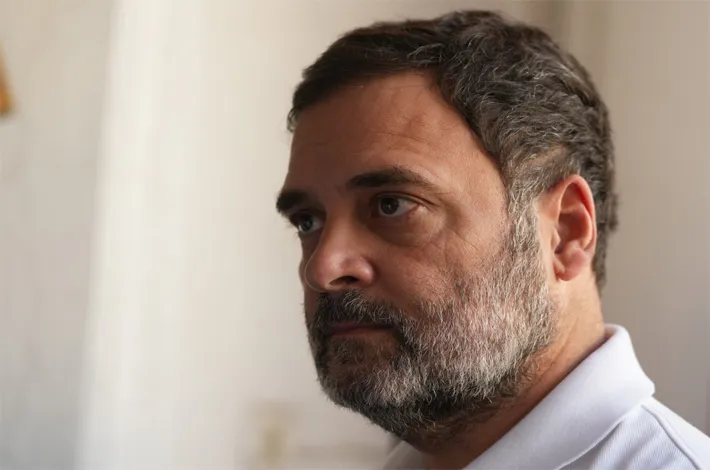Right vs Left
20-08-2025 12:00:00 AM
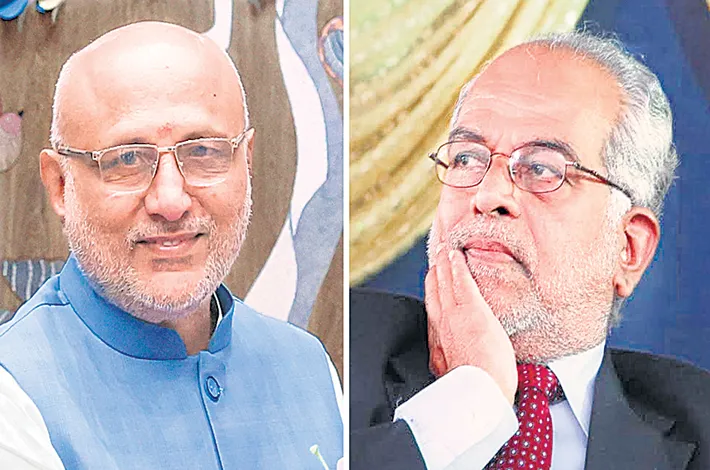
Vice-Presidential Election
Justice B Sudershan Reddy, Opposition’s Beacon!
vjm divakar I hyderabad
On Tuesday, the opposition INDIA bloc announced former Supreme Court Justice B. Sudershan Reddy as its candidate for the vice-presidential election scheduled for September 9, setting the stage for a high-stakes ideological battle against the National Democratic Alliance’s (NDA) nominee, Maharashtra Governor CP Radhakrishnan.
This election, necessitated by the unprecedented resignation of former Vice President Jagdeep Dhankhar on July 21,, citing health reasons, has sparked intense political discourse, amplified by allegations of voter fraud against the NDA. With Justice Reddy’s nomination, the opposition aims to leverage his impeccable judicial legacy and progressive values to challenge the NDA’s numerical dominance in the electoral college. This contest could reshape India’s political dynamics, potentially marking a historic moment if Reddy becomes the first opposition candidate to secure the nation’s second-highest constitutional office.
A Jurist of Distinction
Born on July 8, 1946, in an agricultural family in Akula Mylaram, Rangareddy District, Telangana, Justice B. Sudershan Reddy’s journey from humble beginnings to judicial eminence is a testament to his resilience and commitment to justice. Educated at Osmania University, where he earned degrees in Arts and Law, Reddy enrolled as an advocate with the Andhra Pradesh Bar Council in 1971. His legal career, spanning over four decades, included roles as Government Pleader (1988–1990), Additional Standing Counsel for the Central Government, and Legal Adviser for Osmania University. Elevated as a permanent judge of the Andhra Pradesh High Court in 1995, he later served as Chief Justice of the Gauhati High Court (2005–2007) and as a Supreme Court judge from January 2007 until his retirement in July 2011.
Reddy’s judicial philosophy, deeply rooted in transformative constitutionalism, distinguishes him as a champion of social, economic, and political justice. Influenced by socialist thinkers like Rammanohar Lohia and the total revolution movement led by Jayaprakash Narayan, Reddy viewed the Indian Constitution as a tool for uplifting the marginalized. His judgments reflect a rare blend of erudition, drawing from regulatory theory, political science, economics, and literature, while maintaining a demeanor of equanimity and purposeful engagement. Congress president Mallikarjun Kharge, announcing Reddy’s candidacy, hailed him as “one of India’s most distinguished and progressive jurists,” emphasizing his pro-poor rulings and unwavering commitment to constitutional values.
Landmark Judgments
Justice Reddy’s tenure on the Supreme Court was marked by landmark judgments that underscored his dedication to distributive justice and constitutional integrity. In the Salwa Judum case, Reddy declared the Chhattisgarh government’s arming of tribal youth as Special Police Officers unconstitutional, a ruling celebrated as a powerful affirmation of human rights. His critique of the state’s complicity in predatory capitalism and violation of citizens’ rights highlighted his moral courage.
In another significant ruling, Reddy addressed the issue of black money, criticizing the Union government’s lax enforcement and constituting a Special Investigation Team to probe unaccounted wealth stashed abroad. He observed that “the lure of the lucre” often drives policy distortions, weakening the state’s regulatory capacity. His judgment in the Ambani brothers’ dispute over gas from the KG basin questioned the unchecked privatization of natural resources, famously asking, “Whose gas is it?” Reddy warned against the perils of neoliberal policies that prioritize corporate interests over the public good, arguing that public resources are held in trust by the government, not as private property to be disposed of at will.
Justice Reddy’s rulings on land compensation further exemplified his commitment to the vulnerable. He held that assignees of government land, often from marginalized communities, are entitled to full market value compensation upon resumption for public purposes, rejecting restrictive conditions that undermine distributive justice. His leadership of the Supreme Court’s Forest Bench in 2010, appointed by Chief Justice S.H. Kapadia, set precedents for equitable exploitation of natural resources, ensuring benefits accrue to all in accordance with constitutional mandates.
The Electoral Battle
The 2025 vice-presidential election, governed by Articles 64 and 68 of the Constitution, involves an electoral college of 781 MPs from both houses of Parliament, with voting conducted via a secret ballot using proportional representation and a single transferable vote system. The NDA, with at least 422 members, holds a numerical advantage, making Radhakrishnan’s victory likely. However, the INDIA bloc’s choice of Reddy, a non-political figure with a stellar judicial record, is a strategic move to unify opposition parties and appeal to MPs across party lines, including regional players like the Telugu Desam Party (TDP) and YSR Congress Party (YSRCP).
The opposition’s narrative, amplified by Congress leader Rahul Gandhi’s allegations of “vote theft” by the NDA in collaboration with the Election Commission, frames this election as an ideological fight to protect democratic values. Reddy’s candidacy, backed unanimously by the INDIA bloc and even the Aam Aadmi Party (AAP), which is not formally part of the alliance, underscores this unity. DMK MP Kanimozhi and Congress MP KC Venugopal emphasized the election’s significance as a defense against assaults on democratic principles.
Allegations of Voter Fraud and Political Implications
The opposition’s allegations of voter fraud against the NDA add a layer of intrigue to the contest. Rahul Gandhi’s claims, though not substantiated in the provided data, resonate with broader concerns about electoral integrity, particularly following the Supreme Court’s dismissal of a plea alleging bogus votes in the 2024 Maharashtra polls. These accusations could galvanize opposition MPs and influence undecided voters in the electoral college, though historical trends suggest the ruling coalition’s majority typically prevails. Since 1952, all 16 vice-presidential elections have favored the ruling party’s candidate in contested polls, as seen in Jagdeep Dhankhar’s 2022 victory over Margaret Alva (528–182 votes).
Reddy’s nomination also carries regional significance. As a Telugu candidate, he could challenge the NDA’s strategy of fielding Radhakrishnan, a Tamil Nadu native, to sway southern parties like the DMK. If elected, Reddy would be the fourth Telugu Vice President, following Sarvepalli Radhakrishnan, V.V. Giri, and M. Venkaiah Naidu, potentially altering the political landscape in Andhra Pradesh and Telangana.
A Game-Changer in Waiting?
Justice B. Sudershan Reddy’s candidacy represents more than a symbolic challenge; it embodies the opposition’s vision of a judiciary-rooted, non-partisan figure who can restore faith in constitutional governance. His extensive judicial contributions, from protecting human rights to advocating for equitable resource distribution, position him as a formidable contender. While the NDA’s numerical strength favors Radhakrishnan, Reddy’s appeal as a consensus candidate and the opposition’s unified front could make this election closer than anticipated.
As nominations close on August 21 and campaigning intensifies, all eyes will be on whether Reddy can defy historical precedent and secure a historic victory. His election could signal a shift in India’s political trajectory, reinforcing the opposition’s narrative of safeguarding democracy against alleged electoral malpractices. Regardless of the outcome, Reddy’s nomination has already sparked a vital debate about the role of constitutional values in shaping India’s future, making the 2025 vice-presidential election a defining moment in the nation’s democratic journey.





